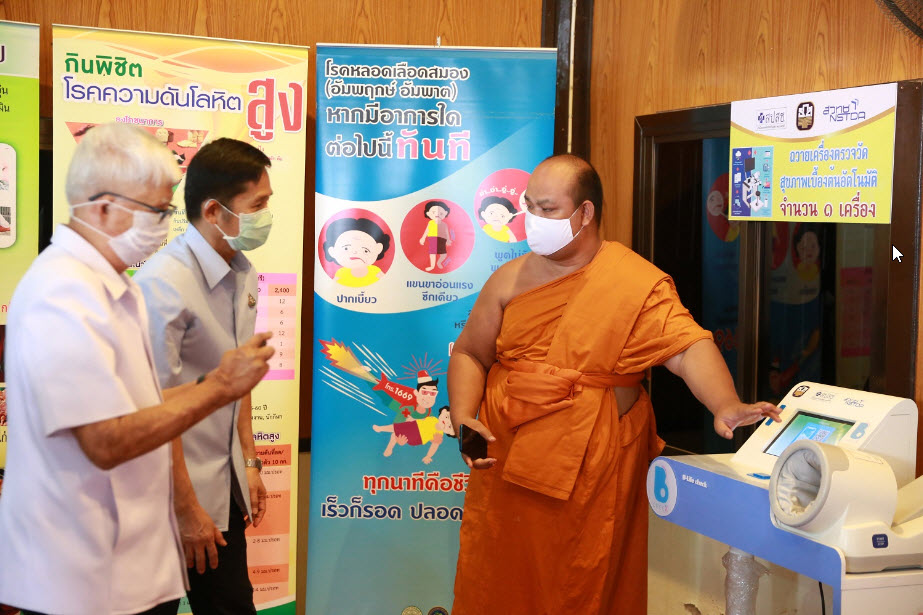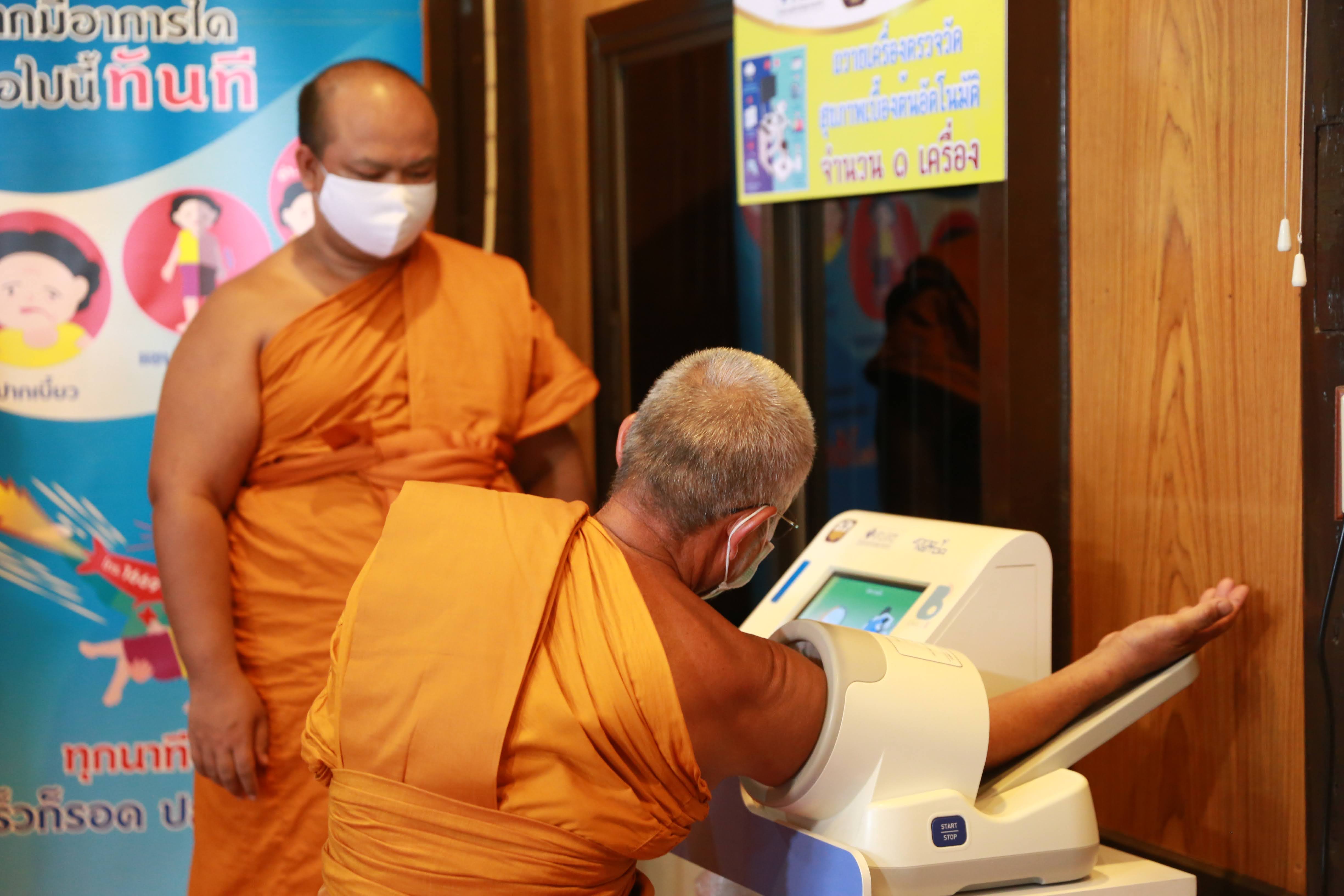
- Home
- DescriptionNews
NHSO seeks "monk health volunteers" to promote primary care in temples.

National Health Security Office (NHSO) and Phetchaburi Administrative Organization piloted a training program for "monk health volunteers," who will lead primary care and look after the health conditions of monks in temples.
The program is called "Phra Kilanupattha" and developed by the Department of Health, which aims to enhance health knowledge of selected monks from each temple.
Dr. Prachaksvich Lebnak, NHSO Deputy Secretary-General, said that the training program combined Buddhism approach and modern medical know-how in promoting the good health of the monks.
Buddhism upholds the value of well-being as necessary for a meaningful and productive life, and encourage people to handle human vulnerability to pain and suffering.
"Monks have experienced health problems, just like most people. Non-communicable diseases such as diabetes, hypertension, and lung diseases are common among monks," said Dr. Prachaksvich.
"We expect that monks joining the training program will have a better understanding of health promotion and disease prevention. They can look after one another in the temples."
Because of duties at the temples, monks often visit hospitals when their health is in a severe stage. Some senior monks do not see doctors when they are sick because of the temples' distances to hospitals.
Monks also face health risk factors, especially from offering food. People often provide the best and tasty food to monks---meaning it may make from ingredients with too much sugar, high sodium, and cholesterol.
Thai Health Promotion Foundation, an autonomous government agency promoting good health, launched a survey on several monks in 2016, and found that consuming unhealthy food and doing less exercise had caused their health problems.
Phetchareuk Tansawad, Director of Phetchaburi Provincial Public Health Office, said that monks joining the training program had an opportunity to learn about health knowledge from practitioners at community-level hospitals.
After completing the program, participants will be able to provide primary care including blood pressure and temperature measurement and blood specimen collection.
Around 190 monks in Phetchaburi have joined the training to be completed in August. His health office targets to engage two monks from each temple. Two hundred seventy-five temples are located in Phetchaburi.
"To have monk health volunteers will increase monks' ability to care for themselves and avoid health risk factors in daily routines," he said.
During the program, NHSO in collaboration with Bank for Agriculture and Agricultural Cooperatives and National Science and Technology Development Agency provides health monitoring devices to temples.
These devices can link health status record to smartphones, allowing monks to report health information to physicians.


